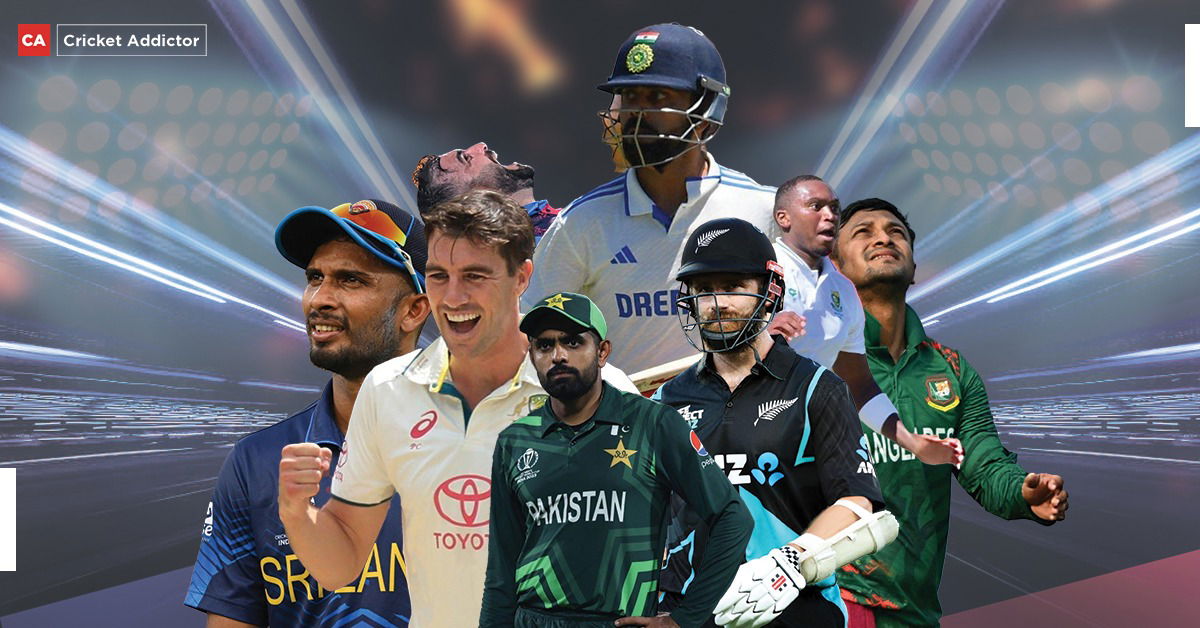On This Day, 13 Years Ago: Australia Complete World Cup Hat-Trick
Published - 28 Apr 2020, 02:32 PM | Updated - 23 Aug 2024, 12:05 AM

A hat-trick from a bowler, a double hat-trick of sixes from batsmen had all been witnessed. But what was entirely unheard of was a team winning a tournament three times consecutively. And that very day as well came along when Australia became the very definition of the World Cup. Even as the Kensington Oval in Barbados on the evening of 28th April 2007 submerged itself in gloominess, Ricky Ponting and his men shimmered from it with all smiles. They were just moments away from lifting their fourth and third World Cup on a row.
Also Read: Tim Paine Reckons That Australian Players Wouldn’t Be Greedy If Asked To Take Pay Cut
It was indeed a cricketing incomprehensible in its own right, a feat that hardly occurs more than once in a century. It was an achievement which even the great Caribbean team of the 70s and 80s missed out on after getting as close as they could. Perhaps amongst the two that the yellow army won under Ponting, the victory in 2007 was arguably the most dominant one. The numbers themselves are unbelievable.
The triumph at the tournament decider against Sri Lanka was their 29th consecutive World Cup fixture without loss, stretching back to Pakistan’s 10-run win at Headingley in 1999. And Australia didn’t just blindside any opposition on their way in 2007; they obliterated them. It was a reflection of the gap that lay between them and the rest of the sides. The 53-run defeat inflicted on Sri Lanka was the closest that any outfit came in challenging them.

Adam Gilchrist’s love affair with World Cup finals continued:
Adam Gilchrist couldn’t have picked a better stage to showcase his credential as a big-match player. After hitting two fifties in the last two finals, the swashbuckling keeper-batsman went for the big one in what was his final tournament. Once the sun began glowing, the southpaw had gauged the pace and bounce of the rocky-hard deck at the Kensington Oval. And there was no stopping him then, who deservedly secured the Man of the Match award.
Matthew Hayden was stuck at the other end, forced to watch his partner manhandle the Sri Lankans. By the time Hayden exited the park for 38 off 55 balls, Gilchrist had sat comfortably on 119. The former’s short burst took his run-tally to 659 runs at 73.22, second only to Sachin Tendulkar’s sum of 671 in a single tournament. The gloveman’s eventually scored 149 off 104 balls surpassed Ponting’s 140 against India as the highest individual tally in a World Cup final.
The likes of Ponting and Andrew Symonds applied the finishing touches for Australia to propel them to a score of 281 in 38 overs. The Duckworth-Lewis rule reduced the target to 269 in 36 overs for the Lankans. Even though Sri Lanka lost Upul Tharanga in the third over to Nathan Bracken, the duo of Sanath Jayasuriya and Kumar Sangakkara kept them ticking. Brad Hogg finally broke the breezy 116-run stand between the pair after which their hope began fading away.
Glenn McGrath, who featured in his last One-day international, bowled a tidy spell of 7-0-31-1. His tally of 26 wickets made him the highest wicket-taker in the tournament, taking his total scalps in World Cup to 71. The pick of the bowlers was shockingly Michael Clarke, whose left-arm spin yielded two wickets in five overs, including the crucial one of Jayasuriya. Bracken, Shane Watson, Symonds, and Hogg also took one each as the opposition could manage only 215 in their allotted 36 overs.

Australia complete a more than a respectable salvageable job:
Considering what their from had been before the ninth edition, Australia couldn’t have done a more commendable job. In months leading up to that, the men in yellow had lost the tri-nation series to England on their home turf. A Michael Hussey-led team suffered a whitewash in New Zealand, relinquishing the Chappell-Hadlee Trophy. But arguably the moment when their ability to defend the crown came under suspicion the most was in March 2006.
It was in Johannesburg against South Africa when the hosts overhauled a target of 435 successfully. The record chase against the reigning world champions not only shattered a host of records but also announced that the upcoming World Cup could be the most open one.
To think of the competition in 2003, Ricky Ponting’s men did found themselves in a spot of bothering on multiple occasions. The likes of England, New Zealand, Sri Lanka and Pakistan pushed Australia to their limits. But each time they were in a corner, a knight always stood up to bail them out.

Pakistan hadn’t come across the eventual champions; however, Australia destroyed New Zealand, England, and Sri Lanka with ease in the super eight stages. England and Sri Lanka were dealt with losses of seven wickets each while the Kiwis suffered a staggering 215-run defeat. The Caribbeans also sustained a 103-run loss.
When asked Punter after the 2011 World Cup about which of the two victories he cherishes, he named the one lifted in South Africa over the crown hoisted in the West Indies. If their last World Cup-winning skipper, Steve Waugh faced an axe, they also entered the competition without Shane Warne. Hence, it was an equally convincing World Cup victory and a win that genuinely marked the rise of Ponting, the captain.
Also Read: Australian Government Mulls Travel Exemptions For Team India’s Test Tour












